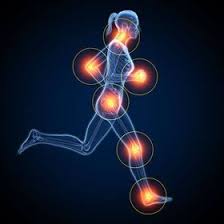The Science Behind Recovery: How Your Body Heals and Builds Back Stronger

Recovery is one of the most crucial yet often overlooked aspects of fitness and health. Whether you’re an athlete pushing your limits or just starting a workout routine, understanding how your body recovers can make all the difference in achieving your goals. Recovery isn’t just about resting; it’s a complex biological process that repairs damage, restores energy, and prepares your muscles for the next challenge.
When you exercise, especially during strength training or intense cardio, tiny tears form in your muscle fibers. This microdamage is the trigger for recovery, signaling your body to begin repair. Specialized cells rush to the site, clearing out damaged tissue and laying down new proteins to rebuild muscle stronger than before. This process, called muscle protein synthesis, is essential for muscle growth and improved performance.
Sleep plays a vital role in recovery. During deep sleep stages, your body releases growth hormone, which aids tissue repair and fat metabolism. Lack of quality sleep can impair these processes, leading to slower recovery and increased injury risk. Prioritizing good sleep habits ensures your body gets the downtime it needs to heal efficiently.
Nutrition is another key factor. Consuming adequate protein provides the building blocks for muscle repair, while carbohydrates replenish glycogen stores depleted during exercise. Hydration helps maintain blood flow and nutrient delivery to muscles. Without proper fueling, your body struggles to complete the recovery cycle, which can hamper progress.
Active recovery techniques like light stretching, yoga, or low-intensity cycling promote blood circulation and reduce muscle stiffness. These activities help flush out metabolic waste and deliver oxygen-rich blood to fatigued muscles, speeding up recovery without adding extra strain.
Modern science also highlights the role of inflammation in recovery. While inflammation is part of the healing process, excessive or prolonged inflammation can delay recovery and cause discomfort. Techniques like cold therapy, massage, and anti-inflammatory nutrition can help manage this balance effectively.
Mental recovery is equally important. Stress and psychological fatigue affect physical healing by increasing cortisol levels, which can break down muscle tissue and inhibit growth. Mindfulness practices, meditation, and adequate rest support both mind and body recovery.
Incorporating a smart recovery plan into your routine not only prevents injury but also enhances long-term performance and well-being. By understanding the science behind recovery, you can train harder, bounce back faster, and stay on track toward your fitness goals.